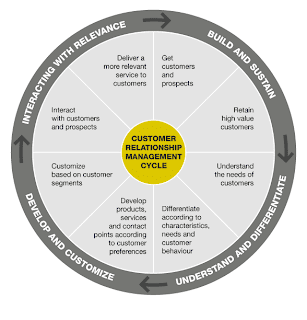Customers are perhaps the most valuable assets. Improving the overall customer experience is vital for continued success and survival, and always has been.
In this competitive world where you're fighting with competitors for every penny, losing a customer is the absolute worst thing that could happen to you. In other words customer retention is the key to success. This mantra has always stood true.
Good customer service is more important amid economic instability. It’s observed 80% of the customers are more likely to give a company representative repeat business after receiving good customer service, while 75% of them will spread the word about a company that treated them well which in turn brings you the new customer.
In today’s online dynamics, 'most sales models are inherently transactional’. But if you start thinking about your customers in terms of relationships rather than transactions, where it's never about one deal, you'll build relationships.
So while everyone seemingly understands the importance of customer relationships, and in today’s time managing and measuring CRM (or Customer Relationship Management) becomes very important.
CRM helps you to reduce costs and increase profitability by solidifying customer satisfaction, loyalty, and advocacy. True CRM brings together information from all data sources within an organization (and where appropriate, from outside the organization) to give one, holistic view of each customer in real time. This allows customer-facing employees in such areas as sales, customer support, and marketing to make quick yet informed decisions on everything from cross-selling and upselling opportunities to target marketing strategies to competitive positioning tactics.'
'If we can build a relationship where they know who we are, they like what we can do, and give an example of how we can help them, then we can give them the trust and that helps solidify relationships.'

No comments:
Post a Comment